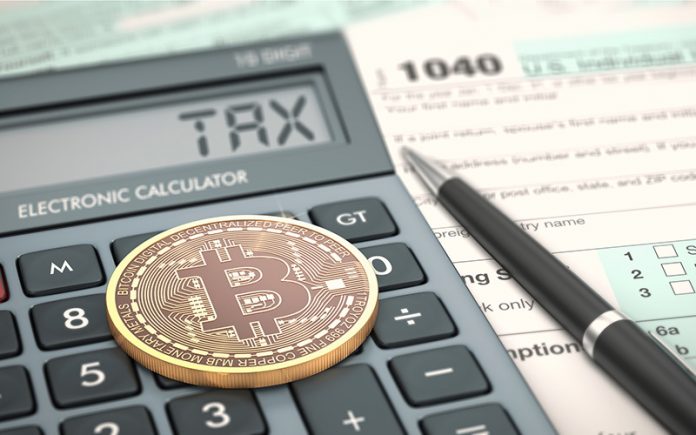The world is ever-evolving, and so are the people. Their working habits, communication and payment methods have evolved and have come a long way from the old barter system.
Business owners and their customers no longer prefer cash. Nowadays, contactless payment methods are preferred. With a quick wave of their mobile phones, customers may pay for things at electronic registers.
Cryptocurrencies are now gaining popularity as a new form of payment method. There is hardly anyone who has not heard of Bitcoin yet. Although it was the first cryptocurrency to garner widespread adoption, others are catching up.
There are about 2,000 different kinds of cryptocurrencies, and new ones are developed every day.
What is cryptocurrency?
A cryptocurrency is a form of digital payment system in which banks do not monitor transactions. It’s a peer-to-peer technology that allows anyone to send and receive money from anywhere.
The actual cash that is transferred in the real world is not shown in cryptocurrency payments. They are linked to an internet database that displays the types of transactions after being verified by encryption. A public ledger keeps track of your bitcoin transactions. You can store your cryptocurrency in a digital wallet. Storing and transferring bitcoin data between wallets and public ledgers requires sophisticated code. The purpose of encryption is to assure security and safety.
Why is there a cryptocurrency tax in the UK?
Profits above £12,300 are subject to taxation in the United Kingdom. You will always be obligated to pay tax on your cryptocurrency investment earnings, regardless of your opinion on the legality of cryptocurrencies.
How does HMRC handle cryptocurrency tax?
Cryptocurrency is a fast-growing industry for many investors and traders. HMRC (Her Majesty’s Revenue and Customs) has published guidelines for anybody who owns bitcoin assets, explaining what taxes they may be responsible for and what records they must keep. The tax requirements encompass crypto trading, payments, income, mining, gifting, and commercial operations.
It’s important to note that HMRC considers cryptocurrencies and other crypto assets to be an asset rather than a type of money or cash. To solve the issue of how crypto assets are taxed, HMRC has split them into four groups.
-
Token exchange
Cryptocurrencies are digital currencies designed to be used as a means of payment. Token exchanges trade cryptocurrencies like Litecoin, Bitcoin and Ethereum.
-
Security tokens
These are tokens that represent certain rights or interests in a business, such as possession, payment of a fixed sum, or a share of future profits. These are “specified investments,” as stated under the Financial Services and Markets Act (2000) by the government.
-
Utility tokens
Utility tokens are redeemed for particular products and services. These goods and services are supplied through a distributed ledger platform. As a result, they grant the bearer access to certain products or services on a platform, generally using distributed ledger technology (DLT).
-
Stablecoins
The value of stablecoins is linked to fiat money or other assets. These are crypto assets on which the tax you have to pay will vary on how you use them.
Is it necessary to pay taxes while sending crypto assets?
You will almost definitely be liable to Capital Gains Tax if you trade, sell, or exchange bitcoins. If you use cryptocurrencies to buy goods or avail services, you may have to pay Capital Gains Tax. If you give the cryptocurrency to another individual (except your spouse), you may be subject to Capital Gains Tax.
There is no need to pay Capital Gains Tax if you have previously paid income tax on the cryptocurrency value.
However, suppose you profited from your cryptocurrency transactions. In that case, you must calculate the profit margin (the difference between the amount you paid for the asset and what you received from it). You will have to pay Capital Gains Tax on the profit that you have earned.
When you get crypto assets, do you have to pay taxes?
Your income includes any bitcoin you earn via labour or mining.
If you receive tokens as a form of payment, you must keep track of them and may be subject to income tax and National Insurance obligations.
If you receive tokens due to mining but do not plan to exchange them, they will be considered other taxable income. In that case, you will need to file a Self Assessment tax return.
What is the best way for you to pay taxes on my cryptocurrency profits?
You’ll need to file a tax return to disclose your income to HMRC, just like any other tax you pay on earnings.
Don’t worry if you’ve never done one before.
The procedure isn’t that tough if you know what you’re doing. You’ll be on the right track if you follow the instructions below!
By the 5th of October, you must have registered for Self-Assessment. Throughout the tax year, keep meticulous records of your trading gains and losses. By the 31st of January, you must have paid all of your taxes. Prepare for the bill by calculating the tax you owe as soon as possible.
If you’re unsure if you really need to pay tax on your cryptocurrencies, you can hire an accountant or a tax advisor to assist you.
Disclaimer: This article contains sponsored marketing content. It is intended for promotional purposes and should not be considered as an endorsement or recommendation by our website. Readers are encouraged to conduct their own research and exercise their own judgment before making any decisions based on the information provided in this article.


























![“Does Everyone Hear Me OK?”: How to Lead Virtual Teams Effectively iStock-1438575049 (1) [Converted]](https://www.europeanbusinessreview.com/wp-content/uploads/2024/11/iStock-1438575049-1-Converted-100x70.jpg)




